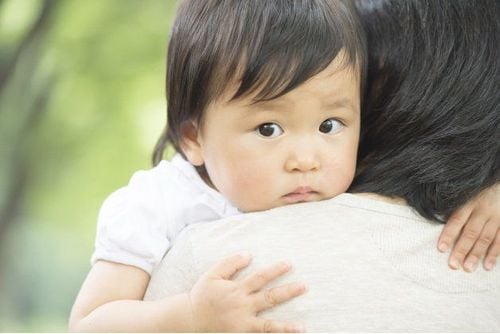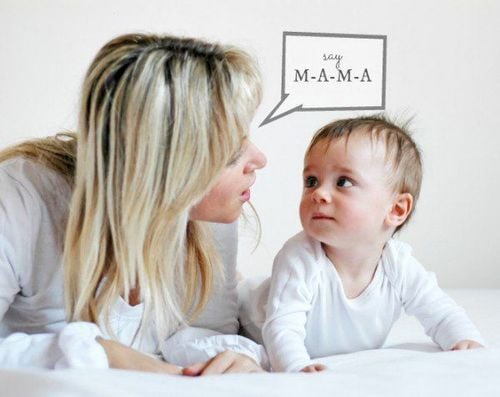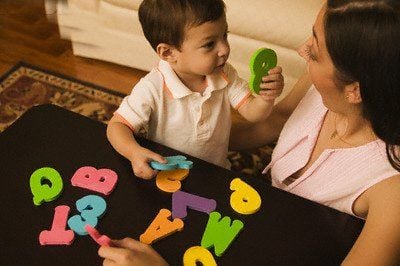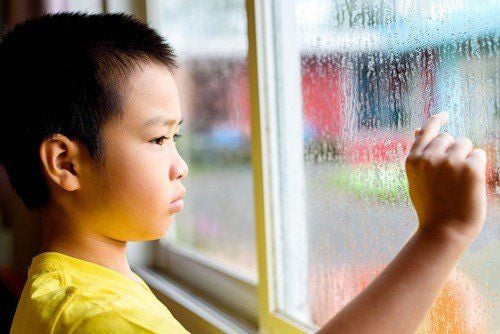This is an automatically translated article.
Article written by Medical Specialist Nguyen Thi Yen - Speech therapy - Department of Regenerative Medicine, Vinmec Times City International Hospital
“I am slow to speak”, “I do not have language yet” or “I do not know how to communicate” are sayings we often hear when someone talks about a baby's delayed language development. So what is the difference between “language”, “speech” and “communication”? How do I know if a child is at risk for language, speech, or communication difficulties?
1. How is “language”, “speech”, “communication” different?
Let's see how to "handle the situation when hungry" of two 3-year-olds as follows:Child 1: The child was playing with a toy, because he was so hungry he went to the dining table, reaching for a packet of cookies. Because the child could not open it by himself, the child came to his mother, gave her a cake and said: "Mom peeled it for me to eat".
Second child: The child is playing with a toy, because he is so hungry he goes to the table, he tries to peel the cake but can't. The child looked at the cake and then at the mother, but at that time the mother was busy working and did not see it. The child ran up to her and pulled her mother's hand into the cake, and the mother reminded her "now don't eat cake". The child threw the cake away and began to cry violently.
Let's take a look at two 3-year-olds' "Handling Hunger Situations" as follows:
Let's analyze how two babies handle this same situation:
Both babies is "communicating" with her mother to express her need to eat cake. The "language" that the first baby uses is the gesture of giving it to the mother and the words "I peeled it for you to eat". The "language" that the second baby uses is the eye look at the mother, the gesture of pulling the mother's hand and the "cry" behavior. It can be seen that, in the same situation, children can behave differently depending on their "language" capacity. Every child is trying to communicate using their language (verbal or nonverbal). Some children are proficient in verbal and non-verbal language; There are also children who only use a few simple gestures and gestures to communicate. “Words” or “gestures” are all one of the “methods” to help children communicate with others.

Cử chỉ là ngôn ngữ phi lời nói giúp trẻ giao tiếp với người khác
2. How do I know if a child is at risk for language difficulties?
Folk have a saying "Children at three - the whole family learns to speak" with the meaning that 3 years old is the best period for children to develop language. However, what about children who are said to be “retarded”? Is it necessary to wait until the age of 3 to identify the child's language, speech, and communication difficulties? The answer is NO.
Children with language or communication difficulties often show "signs" very early, however, we can easily ignore it. Some red flags for delayed language development in children under 2 years old you can watch for:
9 months: no babbling. 15 months: no first word. 18 months: no consistent word. 24 months: does not know word combinations. Slow or stagnant voice development. 24 months old : having trouble understanding your baby's speech at 24 months old. 36 months old: strangers have difficulty understanding baby's speech. At any age: children are not interested in communication or skills fade away. The key point in early detection of the risk of language difficulties in young children is to "Observate" the child when you "GET OPPORTUNITY TO CONTACT" for your child. By observing how your child plays, interacts with adults or with other children, you will know if your child is really "interested" and "engaged" in communication with others. Even if your child hasn't spoken yet, is he or she making "attempts" to communicate using gestures, gestures, or sounds?

Trẻ có khó khăn về ngôn ngữ và giao tiếp thường biểu hiện rất sớm
Many parents share that they understand their children even though they haven't spoken yet. They know when you go to the door and get your slippers, it means you're going out. Parents observe how their children play, talk and recall what their older children did and said at the same age. Or they compare themselves with other children... There are also parents, when they notice that their children seem "less talkative" than their peers, they often talk to relatives or other parents.
The answer they get may be: “My child is also slow but now he talks a lot” or “don't worry, when he is old enough to talk he will talk” or “when his dad was a kid, he was also slow to talk such" . These things may or may not be true. We don't know for sure what will happen, especially when your baby is young.
All parents' concerns about their child's speech and language development are normal. However, make sure you have a good understanding of your child's development and don't miss the opportunity for "Early Intervention". Do not hesitate or hesitate to contact a speech-language pathologist for timely advice and support when you have any concerns about your child's language development.
Please dial HOTLINE for more information or register for an appointment HERE. Download MyVinmec app to make appointments faster and to manage your bookings easily.













